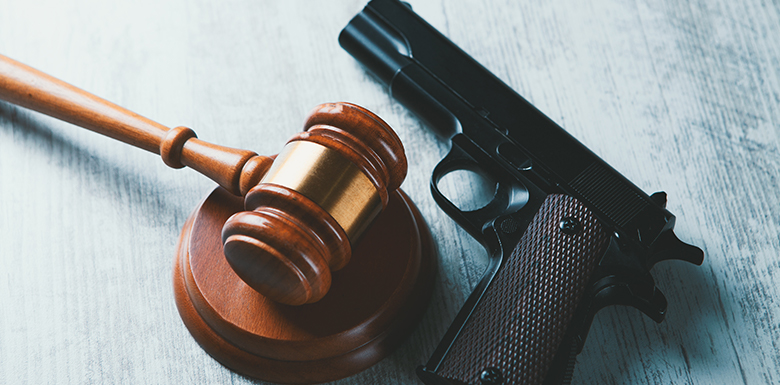Protect Your Firearm Rights: Avoid These 4 Common Mistakes
On behalf of Randall & Stump, PLLC in Firearms, Weapons Charges on Tuesday, September 26, 2023

North Carolina and federal law govern how and where you can purchase, own, and store firearms. But your gun rights are not as ironclad as you think. It is easier than you think to make a mistake and jeopardize or lose your firearm rights.
Awareness of common issues and understanding the fundamentals of your gun laws is crucial so you don’t break any rules or put yourself at risk.
Common Firearms Mistakes to Avoid
Even if you consider yourself a responsible gun owner, one mistake could cause trouble and lead to criminal charges. Here are some of the most common gun mistakes.
1. Failing to Notify Law Enforcement if Stopped
North Carolina law requires you to immediately notify police that you are carrying a concealed weapon during an official encounter such as a traffic stop. You may also have to display your permit or other identification at the officer’s request.
If you fail to disclose that you have a concealed weapon on your person when stopped, you could find yourself in trouble. If police stop you, let the officer know you’re carrying a concealed firearm.
2. Improper Sale or Transfer of Firearm Ownership
Gun owners also might err on the side of caution when it comes to transferring the ownership of firearms. North Carolina law previously used to require a permit to purchase a handgun, but that was repealed in 2023. Those who buy handguns from a gun store or a federally licensed dealer are still subject to a national background check, and concealed weapons permits are still required.
The law also places restrictions on giving a gun to someone else. You may gift a firearm to someone else who lives in North Carolina. However, it is a felony to transfer a firearm to someone you know can’t legally own one or to someone out of state without a proper permit.
3. Improper Gun Storage
North Carolina law does not require gun owners to purchase a locking device when buying firearms. The owner’s responsible for securing and safely storing their guns at home to prevent unwanted access to the weapon and any criminal liability resulting from it. According to § 14-315.1, gun owners can be held criminally liable if a minor gains access to their firearm and does any of the following:
- Possess it on campus or other educational property.
- Exhibit it in a public place in a careless, angry, or threatening manner.
- Cause personal injury or death with it not in self-defense.
- Use it in the commission of a crime.
Safely storing firearms, especially around unsupervised minors, is integral to gun ownership. Failing to store your firearms properly could end in tragedy and criminal liability if you aren’t diligent.
4. Misunderstanding the Castle Doctrine
One of the most severe situations that can put your freedom at risk is misunderstanding the state’s Castle Doctrine, which outlines the situations in which using force for self-defense is justified. One of the key concepts of North Carolina’s stand-your-ground law is occupancy.
If you are inside your home or vehicle when an intruder attempts to access your private space, then you are protected by the law in using lethal force, including your firearm, for self-defense. However, the law is not on your side if you are outside such a space and choose to re-enter with a weapon.
In North Carolina, you do not have a duty to retreat before using deadly force in self-defense. But if you are outside your home or vehicle and enter it because of an intruder inside, the law doesn’t apply. Criminal charges could result if you force without justification.
North Carolina & Federal Firearm Laws
Generally, federal law is much stricter than state law, especially regarding firearm restrictions. Both levels prohibit those convicted of a felony or charged with domestic violence from owning guns and other firearms.
North Carolina Gun Owner Eligibility & Requirements
Since you no longer need a permit to purchase a gun in North Carolina, it is crucial to be aware of other restrictions on ownership and eligibility. A criminal conviction in another state equivalent to a felony in North Carolina prohibits an individual from acquiring and possessing firearms. If a person has been pardoned of their felony charge in North Carolina, they may be permitted to carry a firearm.
In the case of domestic violence crimes with a restraining protective order, it is also illegal to acquire, possess, or receive firearms, whether it is a handgun or firearms accessory.
You must also abide by concealed carry laws. Concealed carry is off-limits in law enforcement or correctional facilities, at protests or demonstrations, and anywhere guns are prohibited by federal law. You also may not carry a concealed weapon on any private property where it is prohibited.
Questions about Your Firearm Rights? Randall & Stump Can Help
North Carolina and federal gun laws are subject to change, and staying informed is essential. If you are arrested or charged with any gun-related offense, call an experienced Charlotte weapon crimes lawyers for help.
Randall & Stump, Criminal Defense Attorneys will thoroughly review your case and weigh the facts that support your defense. No matter what circumstances led to the charges, we’ll advocate aggressively on your behalf and seek the most favorable outcome.
Call today at (980) 237-4579 or contact us for a free initial consultation.
